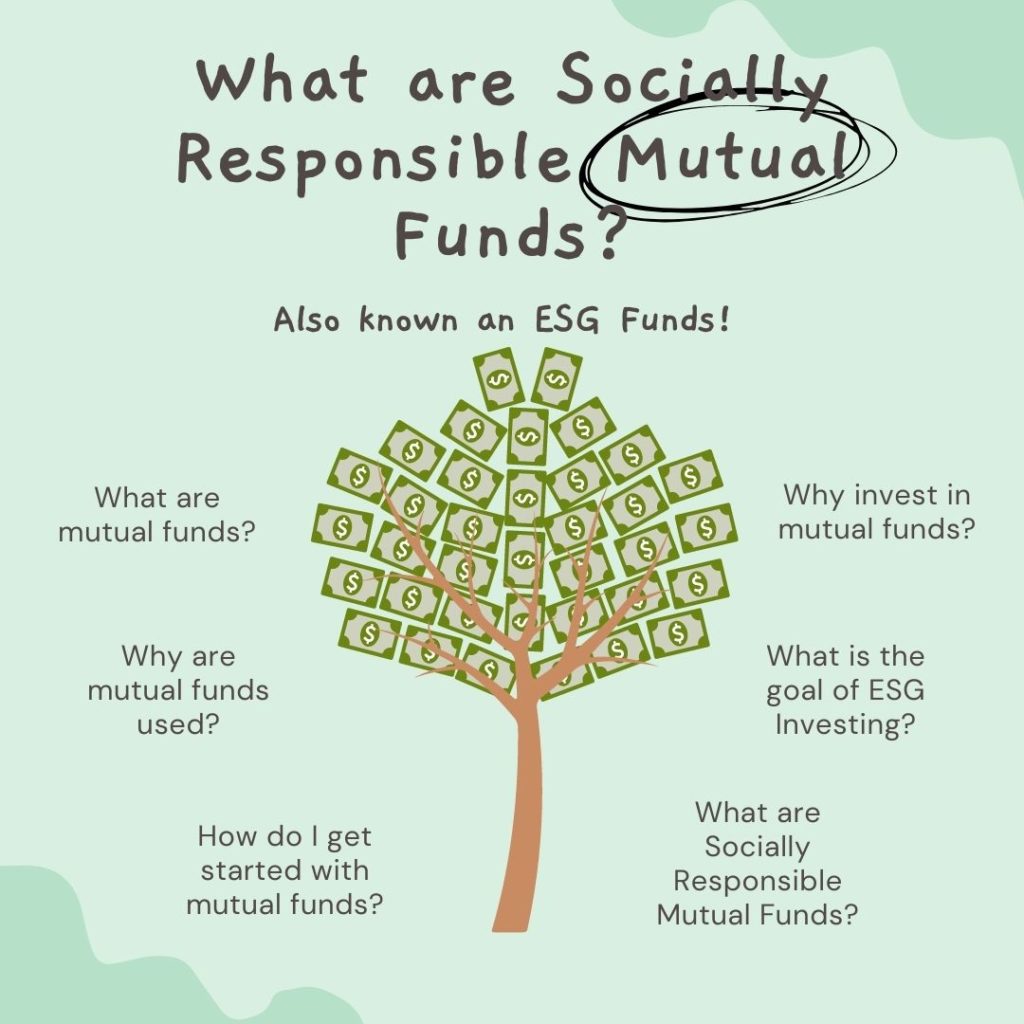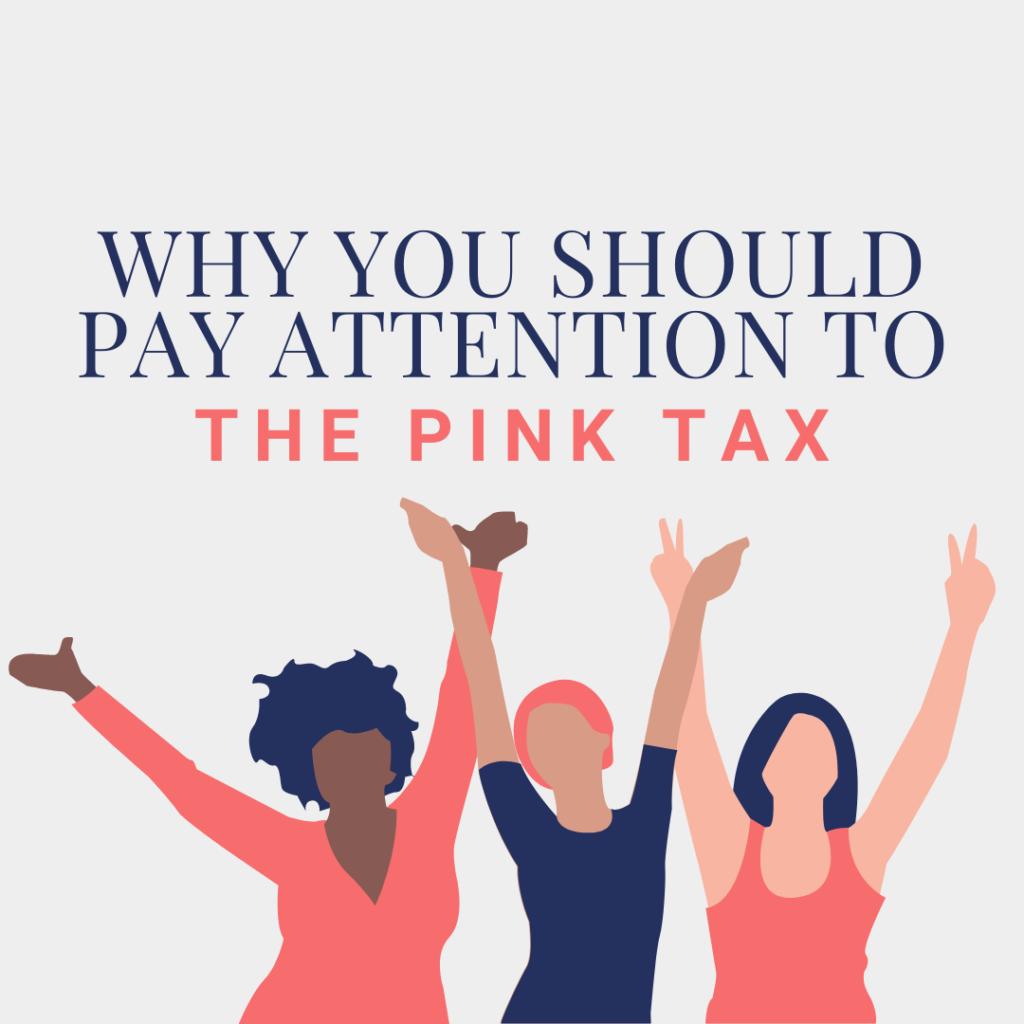You’ve probably heard the term “Mutual Fund” before. Maybe it was in passing at work or around the dinner table with your in-laws, but there was never any real clarity around what they actually are, so you never looked into them. You’re not alone. A little over a year ago less than half of U.S households owned some kind of mutual fund. Understanding what a mutual fund is, paints a clearer picture of why it can be an asset for your financial goals and opens the door to new investment opportunities like socially responsible mutual funds or “ESG Funds.”
What are mutual funds?
Mutual funds are a collection of various stocks, bonds, and other investment securities. When you invest in a mutual fund, you own a certain share of the fund. While fund shares are constantly being traded, the piece that you own is valued as a piece of the total fund. In other words, the total value of all of the stocks, bonds, and securities in each fund is divided by the number of shares owned.
Why are mutual funds used?
People join mutual funds for a variety of reasons, and sometimes new investors don’t even have a good understanding of what they are before joining! Here are some of our favorite reasons from TD Ameritrade for joining a mutual fund.
- They allow you to create a diversified investment.
- They are managed by a financial professional.
- They allow investors to participate in a wide variety of investments.
Why invest in mutual funds?
Mutual funds inherently have less risk than investing in individual stocks and bonds because they are a diversified investment. With the tumultuous retail world we live in right now, it’s important to be diversified in your investments. Should one of the companies you are invested in go bankrupt, you have many more securities (stocks, bonds, etc) in your mutual funds to protect your overall investment.
If you don’t want to research each individual company before investing (let’s be honest…most of us planning for retirement don’t do this full time), mutual funds are a great option! At Invested Interests, we utilize actively-managed,
socially responsible funds that provide many distinct advantages to the average investor.

How do I get started with mutual funds?
The simplest way to start investing in a mutual fund is to find a financial advisor or investment management company that you trust. Knowing who you should choose to manage your mutual fund shares depends on your personal values and goals. Here are a few things to consider.
- Do you value human relationships? Some management companies are completely online and primarily interact with their clients using artificial intelligence (ai) software. However, these Robo Advisor companies don’t allow you much control over what kinds of funds are available to you. The other option is to opt for a company that handles their business face-to-face and is interested in getting to know you and your goals.
- Do you want to know your investment is contributing to positive change? You can join any mutual fund available to you, but there are some that are more ethically sound than others. Knowing that your money is going towards a noble cause like environmental protections, human rights & diversity, or global peace efforts is an added bonus to your investment. Besides, no one wants to admit their booming investment is actually at the hands of companies with poor morals.
- How much do you want to contribute to the start of your investment? If you’re about to invest in your first mutual fund you’ll need to determine how much money you want to contribute to open your account. Some management companies have investment minimums, and won’t take clients who can’t afford to meet that amount. Other companies, like us, opt to have no investment minimum in order to get as many people on the right financial path as possible.
What are Socially Responsible Mutual Funds?
All About ESG Funds
ESG is environmental social governance to explain it literally. Honestly though, when you break it down like that, it’s really not that scary. Now there are other names people like to use when talking about ESG funds, like sustainable investing or socially responsible mutual funds. However, this is really just a huge blanket term that covers a lot more than ESG Funds. So, to give some specific background on ESG Funds, let’s take a look at what factors are listed under each of the three categories. Knowing what qualities make up each category provides a little more insight into what criteria are used to classify different kinds of ESG investments.
Environmental:
This category handles topics like; climate change policies, plans, and disclosures. It also covers the usage of renewable energy (including wind and solar) as well as green products, technologies, and infrastructure.

Social:
This second category primarily covers company policies on social issues like; employee treatment, pay, benefits, and perks. It also includes a company’s public stance on social justice issues/lobbying efforts and their stance on diversity and inclusion in company hiring.
Governance:
This category also seems to be pretty self-explanatory. It includes factors like executive compensation, bonuses, and perks. The level of diversity of the board of directors and management team and a company’s transparency in communicating with shareholders, and any history of lawsuits.

What is the goal of ESG Investing?
In case we lost you at any point, let us be really clear. Essentially ESG Funds aka ESG Mutual Funds, are one style of investing that takes into account which companies will yield good financial returns and are actively doing work to benefit one or more of the three-letter categories.
So not only are you taking initiative to financially plan for your future, but you can rest a little easier knowing that your hard-earned dollars aren’t going to a super sleazeball company with no moral compass or standard of ethics.
There are other ways of aligning your investments with your values of course. For example, you can opt for a Socially Responsible Investment (SRI) strategy to filter out bad companies and use what’s leftover to determine who the good guys are. We’ll talk about this more in another blog post.
One thing you should know is that ESG Investing is a little more forgiving. It sees the glass half full and looks for the good that businesses are doing rather than focusing on their shortcomings. However, different strategies work for different people, and although these two investment strategies take different roads, their purpose falls within the same vicinity.
Advantages of Socially-Responsible Mutual Funds
- Help build a diversified portfolio
- Can be built based on your own individual retirement goals and timeline
- Are actively managed based on current market standings
- Integrate Environmental, Social, and Governance (ESG) factors into investments
- Allow for minimum investments that can grow and be added to overtime
- Require less individual research
- Address and lessen the inherent ri
sks of stock investing
 ESG Mutual Fund & Portfolio Options
ESG Mutual Fund & Portfolio Options
We hand-select from 400+ available ESG mutual funds based on the companies represented, impact opportunities, and, of course, past and future performance measurements. We utilize mutual funds from a variety of world and national funds including Trillium, PAX, Domini, and Calvert.
Each of our investment portfolios holds many different types of mutual funds focused specifically on the investment cause you’d like to pursue including World Peace, Environment, and Human Rights & Diversity. You can choose to invest in one or many of these portfolio options. In addition, we provide custom portfolios and can build in each of the various funds that apply to your retirement goals, timeline, risk tolerance, and socially responsible investment platforms.
Questions about individual mutual funds or portfolio options? Or want a customized portfolio? Reach out to us @ https://investedinterests.com/contact-us/




